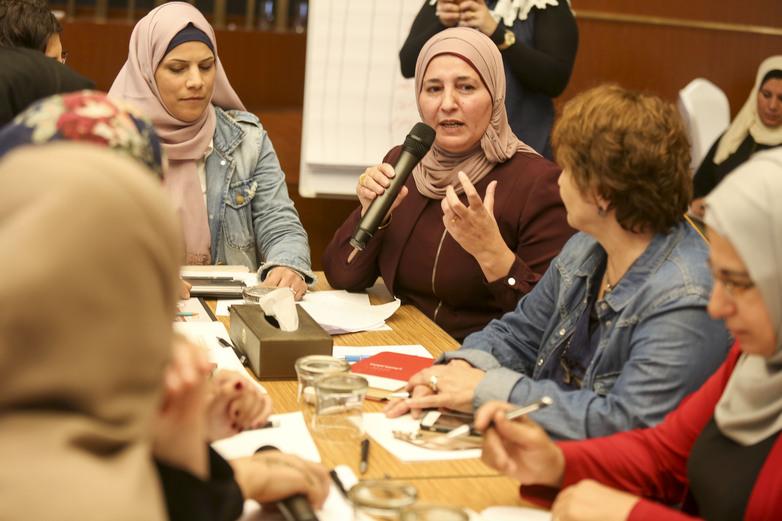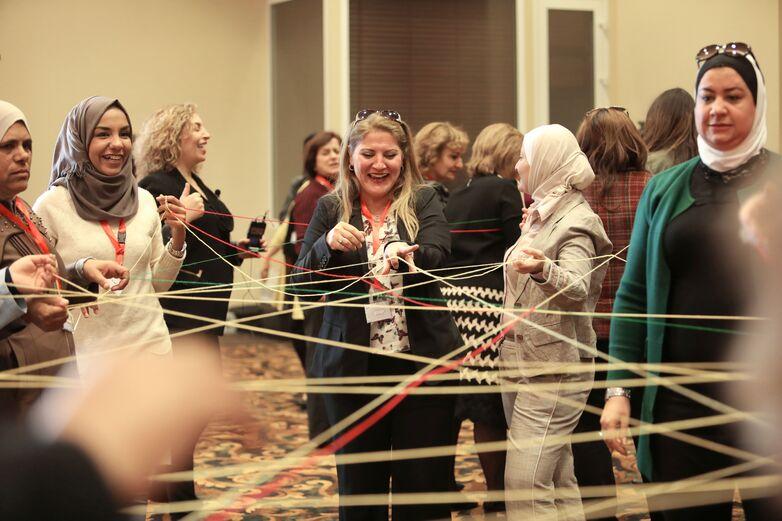Approach
The programme is active in three areas:
- Promoting women in local government and development
- Fostering an enabling environment for women’s political participation by implementing gender audits and assessments in municipalities, and putting the resulting recommendations into practice
- Establishing gender platforms and networks, and reinforcing existing ones that coordinate the objectives and activities of the affiliated civil society organisations.
The measures are aligned with national strategies and objectives as well as the existing activities of other national and international actors. They are flexibly adapted to each country.
The programme focuses on women who play a role in community development as civil society actors or who hold a municipal office or a technical position in the local government of selected cities, rural communities and villages. Greater involvement of women in local government and local politics in general also requires support from men, especially the mayors, local council members and heads of administration who are usually male. This is why the programme actively involves men.
The project is part of a special initiative designed to stabilise and promote development in North Africa and the Middle East run by Germany’s Federal Ministry for Economic Cooperation and Development (BMZ). By implementing the projects that make up this special initiative, BMZ is helping to open up economic and social prospects for people in the region.
Results
The concept of gender audits, which aim to facilitate gender mainstreaming in selected municipalities, was introduced in Jordan and Lebanon. By implementing mentoring projects for female politicians and activists, LEAD has provided a platform for exchange, peer learning and network building among female leaders in the region.
In the Palestinian Territories, more than 2,000 women have received specialised training in different fields or have been involved in awareness-raising activities. Target groups include council members, civil servants in Local Government Units, staff in the Ministry of Local Government, and civil society activists. Additionally, more than 30 community projects led by female council members have been implemented.
In Jordan, 600 female council members and women activists have received training in leadership, managerial and technical skills. In addition, approximately 1,000 men and women have participated in awareness sessions and debates on gender-sensitive decentralisation processes. Around 300 young people have attended seminars on civic education and community activism, enabling them to implement community initiatives and awareness campaigns. Furthermore, a national gender network is being consolidated, and the project has supported women leaders in implementing community projects that have served around 38,000 citizens.
In Lebanon, more than 780 women and 70 men have participated in capacity-building activities in the different regions. 33 community projects by women council members or activists have been implemented in different communities, responding to local needs and improving services for more than 250,000 citizens. In Baalbak-Hermel, support was given to the formation of “Women’s Platform to Lead”, which comprised of 320 women. In addition, six towns adopted gender-responsive action plans after conducting gender assessments.
Latest update: November 2020

